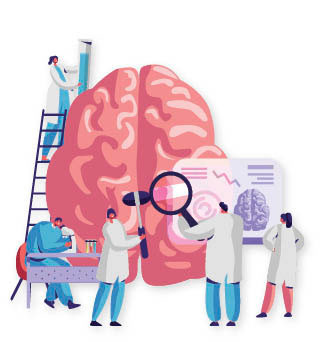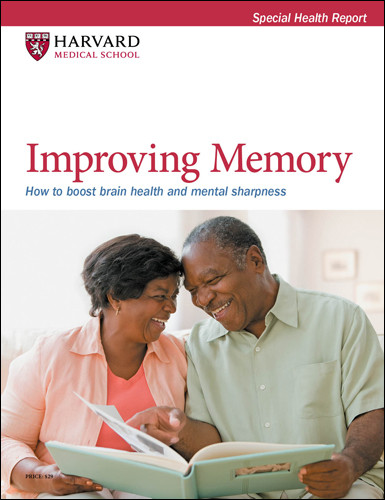Can these approaches really improve memory?
Ask the doctor
 Q.
I'm 70, and my memory isn't what it used to be. I've been seeing news about procedures to improve memory, like injecting young blood or stimulating the brain with electrical currents. Is any of this true?
Q.
I'm 70, and my memory isn't what it used to be. I've been seeing news about procedures to improve memory, like injecting young blood or stimulating the brain with electrical currents. Is any of this true?
A. Believe it or not, it could be. But don't hold your breath waiting for this research to produce a treatment that helps you and me. What you see in the news is part of a growing body of research on slowing aging. We've talked about this before (see "Can we slow the aging process?" in the May 2021 Health Letter). We used to assume that aging, like death, was inevitable. But increasing evidence indicates that it may become possible someday to slow, if not eliminate, the aging process.
That's even true of the aging brain. Between the ages of 50 and 60, various aspects of thinking (including memory) begin to wane. A little less than 10 years ago, experiments showed that when blood of young mice was introduced into old mice, memory improved in the old mice. And a study published online May 11, 2022, by the prestigious scientific journal Nature showed that when spinal fluid (the liquid that bathes the brain) from young mice was infused into the brains of old mice, this also improved memory. More important, these studies have identified specific molecules in the blood and spinal fluid that appear responsible for the improved memory, knowledge that might someday lead to medicines that can prevent or even reverse memory loss.
For several decades, scientists also have been trying to improve memory by exposing the brain to electrical currents, with very mixed results. The studies have focused on both working memory and long-term memory. Working memories are temporarily stored in one part of our brain when we experience an event, and then transferred to another part of the brain for long-term storage.
In contrast to past mixed results, a study in humans (not mice) published online Aug. 22, 2022, by the journal Nature Neuroscience reported on specific types of electrical stimulation directed at specific areas of the brain. The stimulation lasted for 20 minutes each day for four days, and it improved both working memory and long-term memory for at least a month. The electrical stimulation involved no surgery and no pain. These encouraging results need to be reproduced by other scientists, studying other people, before they can be considered true. If they are confirmed, it will remain to be determined how long the benefits last and whether there are any adverse effects.
So, like I said, don't hold your breath. But I think that science is finally beginning to understand the aging process well enough to offer the hope that we will someday be able to slow it — even the effects of aging on the brain.
Image: © invincible_bulldog/Getty Images
About the Author

Anthony L. Komaroff, MD, Editor in Chief, Harvard Health Letter; Editorial Advisory Board Member, Harvard Health Publishing
Disclaimer:
As a service to our readers, Harvard Health Publishing provides access to our library of archived content. Please note the date of last review or update on all articles.
No content on this site, regardless of date, should ever be used as a substitute for direct medical advice from your doctor or other qualified clinician.
















